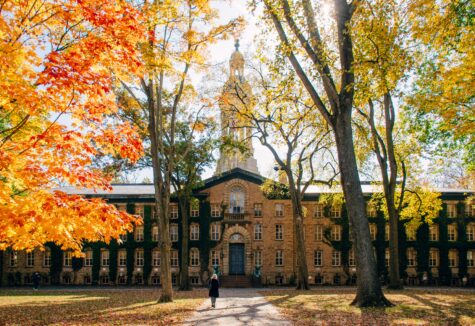- Blog
- > Ivy League Admissions
Are Ivy League Schools Worth It?
The Ivy League is a group of eight private educational institutions in the United States known for their academic excellence, prestigious reputation, and rich history. The Ivy League colleges and universities are:
- Brown University (Providence, RI)
- Columbia University (New York City, NY)
- Cornell University (Ithaca, NY)
- Dartmouth College (Hanover, NH)
- Harvard University (Cambridge, MA)
- University of Pennsylvania (Philadelphia, PA)
- Princeton University (Princeton, NJ)
- Yale University (New Haven, CT)
Many aspects of each of these eight institutions contribute to the prestige of the Ivy League. These features include academic excellence, selective admissions (with admission rates as low as 3% at some of the schools), historical legacy, financial resources, alumni success, research and innovation, and global recognition. These and many other criteria are why many people would answer yes to the question: Is the Ivy League worth it?
Are Ivy League Schools Worth It?
Many people like to measure a school’s worth by the career trajectory and income of its graduates. Some might ask—is there a return on investment from attending an Ivy League school? Others might consider attending the school an achievement in itself, suggesting that it is worth it just to be associated with some of the strongest educational brands in the world.
After all, the brand recognition of Ivy League schools can be extremely helpful in the job search process. Having an Ivy League university on your resume for the rest of your life tends to be quite helpful in standing out amongst a pile of applications. Simply put, attending an Ivy does tend to impress people. It signals that you have a high level of intellect, that you have been able to succeed in an environment rich with competition and academic rigor, and that you have interacted with some of your generation’s future leaders.
With that said, once people get more advanced in their careers, soft skills tend to help people excel and attending an Ivy will matter somewhat less. In essence, employers will start to focus more on how effectively individuals collaborate within teams, communicate their ideas, and demonstrate commitment to their organization and industry. Most importantly, how skilled are they at building and maintaining strong relationships? These soft skills, in addition to determination, hard work, and the ability to become an expert in your domain, will enable you to advance in your career. As such, many individuals can have enormously successful careers without having attended Ivy League universities. In fact, most successful individuals have not attended an Ivy League school.
Still, for many students, attending Ivy League universities is considered worthwhile due to the early career opportunities they may provide with major companies and the enduring prestige of holding an Ivy League degree. Compared to degrees from other schools, an Ivy League education often offers unique networking advantages and recognition that can significantly impact a student’s future career.
Prestigious Schools That Are Not Ivy League Institutions
While Ivy League schools are renowned for their prestige, academic rigor, and history, they are not the only institutions that offer students a top-tier education. Many universities and colleges across the United States are highly regarded for their academic programs, cutting-edge research, and contributions to global scholarship. These schools, often referred to as “Ivy Plus” or “Hidden Ivies,” can provide equally transformative educational experiences.
Examples of Prestigious Non-Ivy League Schools
- Stanford University (Stanford, CA)
Known as the “West Coast Ivy,” Stanford boasts world-class programs in engineering, business, and computer science. Its Silicon Valley location connects students to unparalleled entrepreneurial opportunities. When evaluating the worth of an Ivy League degree, Stanford proves that other options are just as enticing. - Massachusetts Institute of Technology (Cambridge, MA)
MIT is synonymous with innovation and excellence in STEM fields. Its rigorous programs in technology, science, and mathematics are unmatched, and its emphasis on interdisciplinary research fosters groundbreaking discoveries. Of all private universities, MIT is ranked near the top. - Duke University (Durham, NC)
Combining a strong sense of community with academic excellence, Duke is known for its top-ranked programs in medicine, public policy, and law. The university’s global initiatives also make it a leader in international education. While it may not be an Ivy League university, it certainly offers similar benefits to an Ivy League degree. - University of Chicago (Chicago, IL)
With its core curriculum emphasizing critical thinking and intellectual debate, the University of Chicago excels in several fields, such as humanities, economics, and social sciences. Its faculty includes numerous Nobel laureates. The University of Chicago undeniably meets the standards of many Ivy League schools. - Northwestern University (Evanston, IL)
Northwestern is celebrated for its journalism, business, and performing arts programs. The university’s dual-degree opportunities and interdisciplinary approach attract a diverse student body.
How to Choose the Right Fit
The prestige of top schools is just one factor in determining whether a university is the right fit, one that will offer you long-term benefits. Students should also consider:
- Academic Strengths: Does the school excel in your intended major or field of study for your undergraduate education?
- Campus Culture: Does the environment align with your learning preferences and social needs?
- Location: Are you drawn to an urban, suburban, or rural setting?
- Career Goals: Will the school connect you with the opportunities and networks needed for your aspirations?
- Financial Aid: Does the school offer financial aid packages to offset the high cost of an excellent education?
Selective schools provide an array of academic opportunities, research initiatives, and campus experiences that rival or surpass their Ivy League counterparts. For students, choosing the right college is about more than a brand name—it’s about finding a place where they can grow, thrive, and achieve their goals.
How to Get into an Ivy League School
Applying and getting accepted to an Ivy League college is an intricate process characterized by intense competition and high academic standards. Beyond possessing a stellar high school GPA, Ivy League applicants must also excel in the most challenging coursework available to them, including advanced and/or honors classes. Standardized test scores, such as the SAT or ACT, play a pivotal role, with successful candidates typically aiming for scores well above national averages.
Ivy League colleges equally value academics along with what a high school student does outside of the classroom. They emphasize active leadership involvement in extracurricular activities and notable achievements in areas like school clubs, sports, arts, or community service. Personal essays are another crucial element, allowing applicants to convey their uniqueness and motivations. Interviews and letters of recommendation also contribute to a comprehensive evaluation. Moreover, Ivy League schools emphasize diversity and have robust financial aid programs, underlining their commitment to inclusivity and accessibility. Overall, the application process at Ivy League schools differs markedly from that of many other universities due to its multifaceted nature, the exceptionally high level of competition, and the demanding academic and holistic achievements that applicants are expected to reach.
Simplify the Ivy League Admissions Process with Spark
Choosing the right Ivy League school is a crucial decision, and partnering with an expert can significantly enhance your chances of making informed choices aligned with your goals. Our team is comprised of seasoned college admissions consultants with deep insights into the Ivy League college admissions landscape.
Through our dedicated, personalized guidance, we can help you navigate the intricate application processes, ensuring that your strengths, achievements, and aspirations are effectively highlighted. Spark Admissions provides strategic advice on building an impressive academic narrative, crafting compelling personal statements, optimizing standardized test preparation, and so much more.
With our commitment to individualized support, we hope to demystify the nuances of each Ivy League institution, helping you make an informed decision about which school aligns best with your academic and personal aspirations. To learn more, you can reach out to us here to schedule a complimentary initial consultation with one of our expert consultants.


